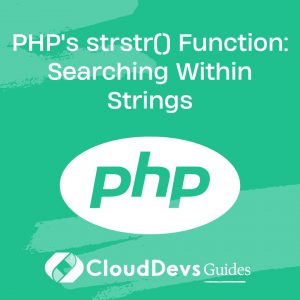What is RESTful API development?
RESTful API development in PHP refers to the practice of building web services that adhere to the principles of Representational State Transfer (REST). REST is an architectural style that promotes simplicity, scalability, and a standardized way of designing networked applications. RESTful APIs in PHP are widely used for enabling communication between web applications, mobile apps, and other software components. Here are the key aspects of RESTful API development in PHP:
- Resource-Based: In REST, everything is treated as a resource, such as users, products, or orders. Each resource is identified by a unique URI (Uniform Resource Identifier).
- HTTP Methods: RESTful APIs use standard HTTP methods like GET (for retrieving data), POST (for creating data), PUT (for updating data), and DELETE (for deleting data) to perform actions on resources. These methods map well to the CRUD (Create, Read, Update, Delete) operations.
- Stateless: REST APIs are stateless, meaning each request from a client to the server must contain all the information needed to understand and process the request. The server doesn’t store any client state between requests.
- JSON or XML: Data is typically exchanged between clients and servers in a lightweight format like JSON (JavaScript Object Notation) or XML (eXtensible Markup Language). JSON is the most common choice due to its simplicity and ease of use in PHP.
- CRUD Operations: RESTful APIs provide endpoints for performing CRUD operations on resources. For example, you might have `/users` for listing users, `/users/{id}` for retrieving a specific user, and so on.
- Authentication and Authorization: RESTful APIs often require authentication and authorization mechanisms to ensure that only authorized users can access certain resources or perform specific actions.
- Versioning: To maintain backward compatibility as APIs evolve, versioning is commonly used. API versions are typically included in the URI or as a request header.
- HATEOAS: HATEOAS (Hypermedia as the Engine of Application State) is a concept in REST where APIs provide links or references to related resources, enabling clients to discover available actions dynamically.
PHP makes it straightforward to build RESTful APIs by using frameworks like Laravel, Symfony, or Slim that provide tools and conventions for resource routing, request handling, and response formatting. RESTful APIs have become the standard for web service development due to their simplicity, scalability, and ease of integration with various client applications.







